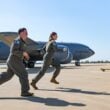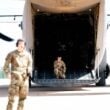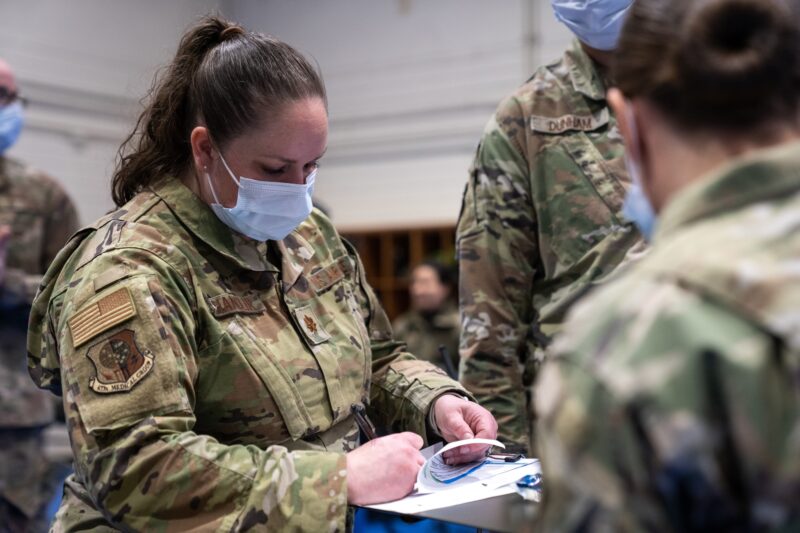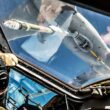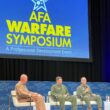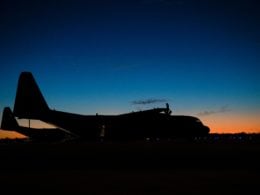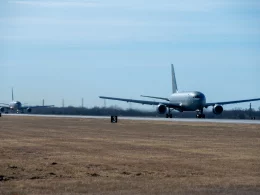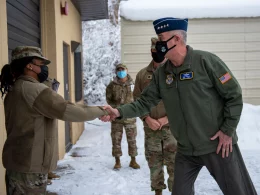JOINT BASE ELMENDORF-RICHARDSON, Alaska —
The U.S. Transportation Command kicked off Exercise Ultimate Caduceus 2023’s field training portion with key players from 673d Medical Group and Golf Company, Detachment 2, 2-211th General Support Aviation Battalion, Alaska National Guard at Joint Base Elmendorf-Richardson, Alaska on March 13.
The primary goal of this exercise is to evaluate the capabilities of and provide field training to aeromedical evacuation, critical care air transport teams, and medical staging systems: reception and onward movement function for global patient movement.
UC23 is an annual patient-movement exercise to test the ability of USTRANSCOM to provide medical evacuation. The field training operation spans four locations: Joint Base Lewis-McChord, Washington; Boise, Idaho; Portland, Oregon; and JBER.
“The exercise is to test our ability to move patients in volume,” said USTRANSCOM Surgeon General Air Force Col. Rudolph Cachuela, UC23 exercise director. “We brought patients from [JBLM], and [JBER] is testing its ability to receive patients, keep them overnight, then reload patients to [the aircraft] and bring them back to JBLM.”
USTRANSCOM oversees moving medical patients from outside the United States to hospitals in the United States. It is the Department of Defense’s single manager for global patient movement. UC23 will improve this ability by using rotary and fixed-wing aircraft to move patients to and from regional medical facilities and federal coordinating centers.
“It’s great to see the entire team of [JBER] coming together to enable this part of the exercise to happen,” said Cachuela, who is based at Scott Air Force Base, Illinois. “It is very important that we exercise this type of patient-movement activity because what we do here in a training environment just makes us sharper if we have to do it for real.”
While a similar exercise was conducted nine years ago here at JBER, this is the first medical air transport exercise.
To make the aeromedical evacuation work, it takes a total-force team and to execute the whole continental United States base distribution method, it takes an entire government effort.
“We have the Department of Veterans Affairs, local federal government center, and Alaska National Guard all coming together so we can execute this mission. We can do it efficiently and move our patients through the system,” Cachuela added.
The UC23 uses a simulated scenario to create a realistic crisis that prompts a military-patient movement response from the Indo-Pacific theater.
“The exercise is intended to simulate encounters where we receive large numbers of casualties who, due to an overwhelmed system, must be moved to other medical facilities such as the DOD, VA, or civilian agencies across the country,” said the medical emergency manager Air Force 1st Lt. Colin Cooley, 673d Medical Group medical readiness plans and programs officer-in-charge. “This shows our unity of effort while using the whole-government approach.”
Cooley said the exercise gives participants hands-on experience for possible real-world events and the ability for key agencies that might have to interface now, before an emergency happens.
“This was a great opportunity to validate our interoperability with our active-duty mission partners,” said U.S. Army Chief Warrant Officer 3 Nicholas Fussner, an HH-60M Black Hawk helicopter pilot with G Company, 2-211th GSAB. “This type of exercise helps to improve our core mission – to support the nation and our fellow Alaskans.”
This year, more than 400 military and civilian personnel from the joint and total forces are participating in the exercise. These include medical representatives from the U.S. Department of Veterans Affairs, the U.S. Department of Health and Human Services, and the Defense Health Agency.


